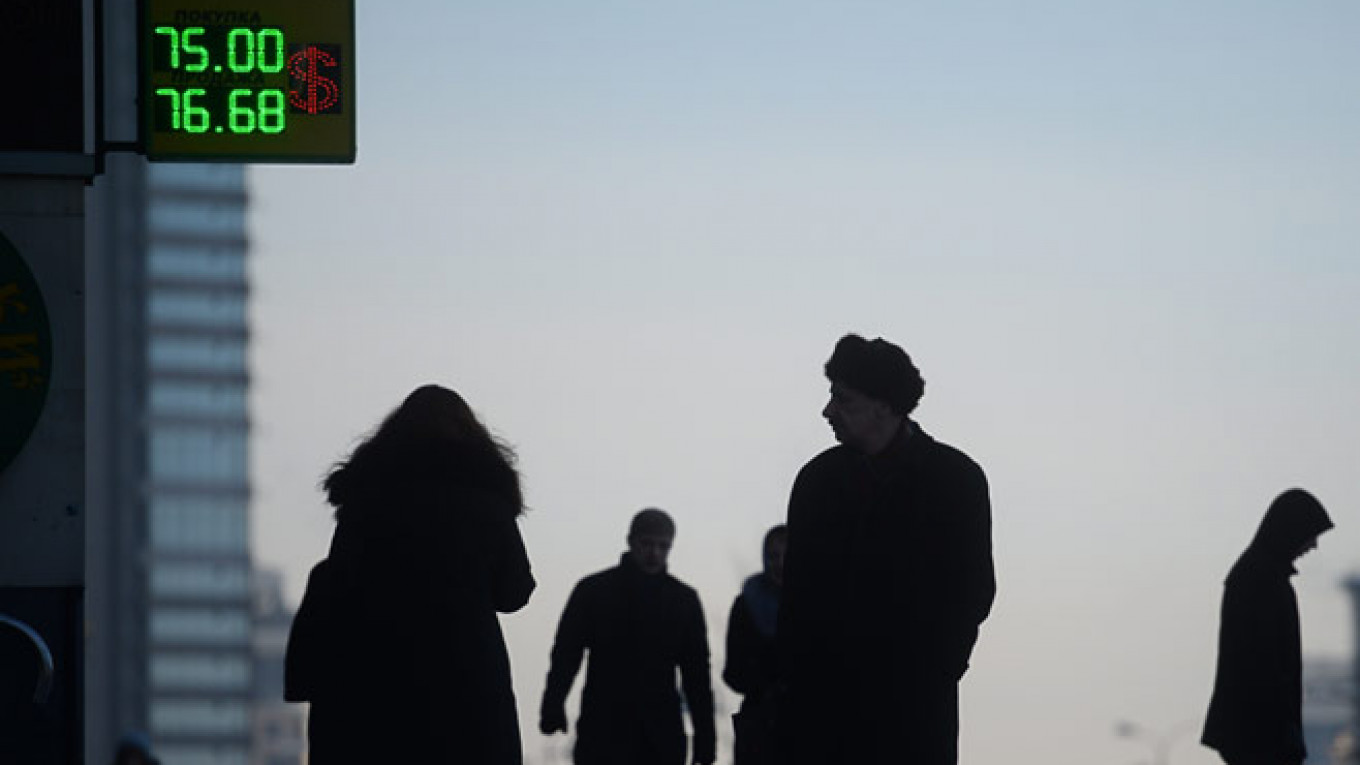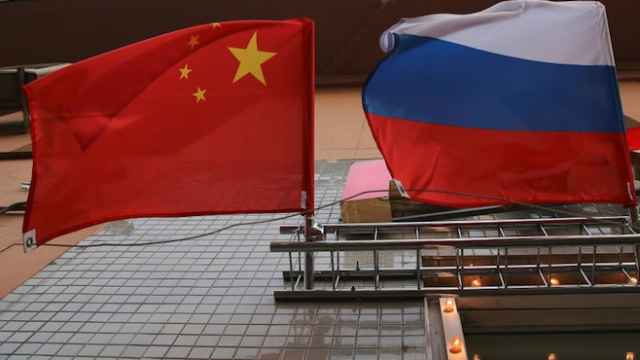New fears over China’s economy and sharp falls in the price of oil have worsened the outlook for Russia as it tries to emerge from recession.
The price of crude, the linchpin of Russia’s economy, fell almost 20 percent in the first two weeks of January to just above $30 per barrel after Chinese stock indexes tumbled more than 10 percent in the first days of the year.
While the oil price falls threatened to derail hopes for an economic recovery in Russia, the turmoil on the stock markets deepened fears that Chinese economic growth, which has powered commodity prices and the global economy, could decline faster than expected. This may have serious consequences for Moscow — keeping the price of commodities lower for longer and weakening a strategic trade partner.
“For Russia, this is very unpleasant news,” said Yevgeny Nadorshin, chief economist at AFK Sistema, a major Russian conglomerate.
Worst Case
As the oil price plunged, Russia’s worst case scenario appeared to be coming true. The ruble followed the oil price downward, weakening 4 percent in the first two weeks of January to around 76.5 against the U.S. dollar — near its lowest since the crisis of 1998 and less than half its value two years ago.
Finance Minister Anton Siluanov said at the Gaidar Forum in Moscow that his budget, which receives around half its revenues from the energy industry, would balance only at $82 per barrel, according to the Reuters news agency. Predicting an average oil price of $40 for the year, he said the budget must adapt to new realities or Russia would see a repeat of the disastrous financial crisis of 1998-99.
He also said government departments were drawing up 10 percent spending cuts in non-protected areas.
Already in its longest recession since the 1990s after shrinking an estimated 3.7 percent last year, the economy could contract by another 2-3 percent in 2016 if oil prices average $35 per barrel, the Central Bank said in December, while the budget deficit would expand and currency reserves depleted.
A survey by state pollster VTsIOM published in early January found that more than half of Russians — 52 percent — thought the “hardest times” for the country were yet to come.
Lower for Longer
Stock market volatility in China suggests that they could be right. China’s economy has been the main driver of global demand for commodities, and a slowing of Chinese growth would exacerbate the price slump.
A World Bank report in early January said a one-percent fall in China’s growth rate would reduce the value of commodities by around 6 percent over two years, and warned of a “protracted period of low commodity prices in coming years.”
Oversupply has already sharply lowered the cost of oil, gas and metals, of which Russia is also a major producer. Energy prices fell by 41 percent last year and industrial metals by 24 percent, according to the S&P Goldman Sachs Commodity Index.
Another threat to prices is if China moves to stimulate its economy. Morgan Stanley said in a January report that a rapid devaluation of the Chinese currency designed to boost its exports “could send oil into the $20s [per barrel]” — its lowest in 15 years.
On top of that, a strengthening U.S. dollar is pushing down prices by making it more expensive for those using other currencies to buy dollar-traded commodities.
The movement of these two currencies is mutually reinforcing, Morgan Stanley said — a weaker Chinese economy encourages flight to the dollar, while a stronger dollar increases the temptation for Chinese policymakers to devalue.
Weathering the Storm
President Vladimir Putin in an interview with Germany’s Bild newspaper in early January tried to cast commodities’ low prices as a blessing in disguise, saying that when oil prices were high it was “very difficult for us to resist spending oil revenues to cover current expenses,” and the new reality would be an incentive to rebalance the economy.
But a lack of available investment capital has stifled diversification. And amid a slump in incomes and consumer spending, Russia’s commodities sector is one of the few major industries to be faring relatively well, analysts said.
The weak ruble has allowed energy, metals and mining companies, which earn export revenues in dollars, to maintain incomes in ruble terms. Meanwhile, Russian producers have become much more competitive on global markets thanks to huge falls in the cost of labor that have lowered production costs.
The cost of labor in Russia has fallen to rival that of China, said Valery Mironov, deputy director of the Center of Development at the Higher School of Economics, a Moscow university.
However, new investment in production has been limited by sanctions and the recession at home. And if prices remain low for an extended period of time, even Russian companies will be forced to retrench, analysts said.
Eastern Promises
In the longer term, worries over Chinese growth also strike Russian interests in a deeper way, knocking confidence in China as a financial ally for Moscow.
Following a breakdown in relations with the West following Russia’s annexation of Crimea in 2014 — and more recently with Turkey over the shooting down of a Russian warplane on the Turkish-Syrian border — Moscow has looked to build relations with dynamic emerging markets, particularly with China.
Hopes of a flood of Chinese capital into Russia failed to materialize following the Ukraine crisis, but the longer-term aim of hitching Russia to east-Asian growth remained.
That decision now looks increasingly flawed, said Neil Shearing, chief emerging markets economist at Capital Economics. Russia’s “pivot” to the east and hope that developing nations would become the engine of global growth have been undermined by recent events, he said.
A full-blown crisis is unlikely thanks to China’s massive foreign exchange reserves. But increasing fears of lower Chinese growth are coming as the United States begins to lift interest rates, fueling a massive reallocation of capital from emerging markets to developed ones and sapping strength from emerging economies, many of which are heavily indebted.
That isn't the way Russia planned it. “All bets were on China,” said Sistema’s Nadorshin.
Contact the author at p.hobson@imedia.ru
A Message from The Moscow Times:
Dear readers,
We are facing unprecedented challenges. Russia's Prosecutor General's Office has designated The Moscow Times as an "undesirable" organization, criminalizing our work and putting our staff at risk of prosecution. This follows our earlier unjust labeling as a "foreign agent."
These actions are direct attempts to silence independent journalism in Russia. The authorities claim our work "discredits the decisions of the Russian leadership." We see things differently: we strive to provide accurate, unbiased reporting on Russia.
We, the journalists of The Moscow Times, refuse to be silenced. But to continue our work, we need your help.
Your support, no matter how small, makes a world of difference. If you can, please support us monthly starting from just $2. It's quick to set up, and every contribution makes a significant impact.
By supporting The Moscow Times, you're defending open, independent journalism in the face of repression. Thank you for standing with us.
Remind me later.






